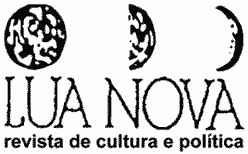Resumo em Português:
O trabalho analisa a nova etapa do regionalismo na América Latina, caracterizada por três "retornos": o retorno a um papel protagonista do Estado, o retorno à política nas relações regionais e o retorno ao desenvolvimento e a uma agenda social, no contexto da emergência de novos organismos regionais de caráter interestatal e de um novo papel dos respectivos presidentes. Nesse marco, analisa-se o papel da sociedade civil e os apelos à participação cidadã, especialmente em relação à inclusão da agenda social na agenda regional. O principal argumento neste trabalho sinaliza que, apesar dos apelos existentes, desde 2005-2006, os mecanismos de participação dos movimentos sociais e da sociedade civil em geral, nos organismos regionais, tenderam a reduzir-se, da mesma forma que a capacidade de incidência dos atores sociais não governamentais sobre a formulação e implementação de uma agenda social regional, aumentando o déficit social existente no contexto regional. Com o objetivo de fundamentar essa argumentação, é analisada a evolução destes mecanismos e dos atores sociais tradicionalmente envolvidos na agenda regional.
Resumo em Inglês:
The paper analyzes the new stage of regionalism in Latin America, characterized by three "returns": the return to a leading role of the State, the return to politics in regional relations and the return to development and social agenda in the context of the emergence of new regional bodies of interstate character and a new role for their presidents. Within this framework, we analyze the role of civil society and appeals to citizen participation, especially in relation to social inclusion agenda in the regional agenda. The main argument in this paper indicates that, despite the existing appeals, from 2005-2006, the mechanisms of participation of social movements and civil society in general, in regional organizations, tended to decrease in the same way that the ability to focus social non-governmental actors on the formulation and implementation of a regional social agenda, increasing the existing social deficit in the regional context. In order to substantiate this argument is analyzed the evolution of these mechanisms and social actors traditionally involved in the regional agenda.
